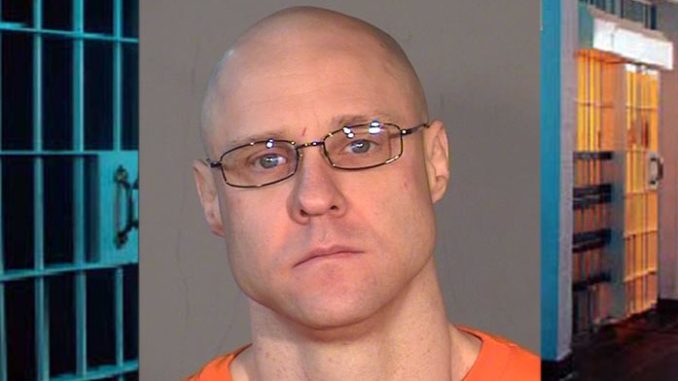
An admitted associate member of the Arizona Aryan Brotherhood is not entitled to a new trial even though several jurors expressed concerns for their safety before they began deliberations, the Arizona Court of Appeals ruled this week.
Glenn Robert Greer was convicted by a Pinal County jury in January 2018 of conspiracy to commit first-degree and several related crimes connected to a plan to kill a witness in a murder trial involving another Aryan Brotherhood member. He was sentenced to life in prison without the possibility of any release for 25 years, followed by three other sentences in the same case.
Greer, 41, appealed his conviction, but on April 13 a state appellate court ruled he had failed to demonstrate any “actual prejudice” during the trial, even though the majority of jurors told the judge early on that they were troubled by testimony about prior efforts by some Aryan Brotherhood members to harm anyone who poses a threat to the gang.
Court records show Greer was in custody of the Arizona Department of Corrections (ADC) in 2014 when he was identified as a probational member of the Arizona Aryan Brotherhood. He was released from custody in early 2015, but by then Greer and several other gang members were preparing to kill the witness.
What the co-conspirators didn’t know was that one of them was acting as a paid ADC informant. So when Greer provided someone a gun for use in the murder, the conspirators were arrested.
A grand jury then indicted Greer on four felonies, including conspiracy to commit murder, supplying a firearm to someone knowing it would be used in a felony, prohibited possession of a firearm by a felon, and assisting a street gang.
After being convicted, Greer appealed on the grounds that he was denied an impartial trial. His main argument was that jurors discussed among themselves their safety concerns after an ADC gang taskforce officer testified about the Aryan Brotherhood’s prior bad acts.
Until that point in the trial, the jurors had been identified in open court by their names, and anyone in the courtroom could have gleaned information about their addresses, workplaces, and family. The morning after the gang specialist testified, two jurors wrote the trial judge of concerns for their safety. One note was signed, the other wasn’t.
When questioned by the judge, nine of the 14 seated jurors -which included two alternates- admitted talking with each other about their safety concerns. But the judge denied a mistrial after the jurors expressed assurance that they could still decide the case fairly and impartially.
The trial continued over the objection from defense counsel, although the judge ordered that the jurors be referred to by number instead of name for the rest of the proceeding.
In the end, the juror who signed the note to the judge was one of the 12 jurors who took part in deliberations. There was no way of knowing whether the anonymous note writer ended up as a deliberating juror or an alternate.
Greer’s appeal argued that by discussing their fears of retaliation, the jurors actually discussed testimony before the trial was concluded, which they were routinely admonished about by the trial judge. The result, Greer contended, was a violation of his right to “a fair trial before an unbiased and impartial jury.”
However, the court of appeals ruled that “absent evidence to the contrary” it must be presumed that the jurors acted impartially.
Based on the appellate ruling, Greer now has three options: petition the Arizona Supreme Court for review of his appeal by the end of the month, request a court-appointed attorney file for post-conviction relief through the trial judge, or accept the conviction and sentence.
Greer’s appeal also argued that the written record of two of his four sentences was incorrect. The appellate panel agreed and ordered six months shaved of the amount of time he must serve after completing his life sentence.
